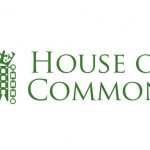Why do so many new CEOs fail to turn around struggling companies, even with a fresh strategy? Maybe it’s not just about leadership.
My new book Corporate Trauma:The toxic legacy of a crisis introduces a powerful new concept – the lasting impact of a past corporate crisis. Drawing from the biological field of Epigenetics, the book argues that a significant organizational shock can embed dysfunctional patterns deep within a company’s cultural DNA that leads to decreased morale and productivity, a breakdown of trust amongst investors, employees, leadership, and a culture of fear, blame, and risk avoidance.
This book offers a new lens to diagnose why companies get trapped in a downward spiral. It goes beyond the classic turnaround playbook to identify and address the root cause of persistent failure, offering an invaluable path to strategic renewal and injecting vitality back into any organization. The book is on AMAZON and now available for pre-order.
The foundational research previously informed the UK Government’s ‘Build Back Better: our plan for growth’ and the Business, Energy and Industrial Strategy’s Committee’s ‘Innovation Strategy’ in 2021.
If any BU research group would like me to present the research findings, please get in touch with me at: joliver@bournemouth.ac.uk
 BU research influences new UK Govt. Innovation Strategy
BU research influences new UK Govt. Innovation Strategy Dr Oliver’s webinar to US Major League sports executives
Dr Oliver’s webinar to US Major League sports executives VIRTUAL ROUNDTABLE (FACEBOOK LIVESTREAM): Digital media and the Syrian Crisis.
VIRTUAL ROUNDTABLE (FACEBOOK LIVESTREAM): Digital media and the Syrian Crisis.










 Exploring Embodied Research: Body Map Storytelling Workshop & Research Seminar
Exploring Embodied Research: Body Map Storytelling Workshop & Research Seminar Marking a Milestone: The Swash Channel Wreck Book Launch
Marking a Milestone: The Swash Channel Wreck Book Launch No access to BRIAN 5-6th February
No access to BRIAN 5-6th February Missing Persons Indicator Project Recruitment
Missing Persons Indicator Project Recruitment ECR Funding Open Call: Research Culture & Community Grant – Apply now
ECR Funding Open Call: Research Culture & Community Grant – Apply now MSCA Postdoctoral Fellowships 2025 Call
MSCA Postdoctoral Fellowships 2025 Call ERC Advanced Grant 2025 Webinar
ERC Advanced Grant 2025 Webinar Update on UKRO services
Update on UKRO services European research project exploring use of ‘virtual twins’ to better manage metabolic associated fatty liver disease
European research project exploring use of ‘virtual twins’ to better manage metabolic associated fatty liver disease